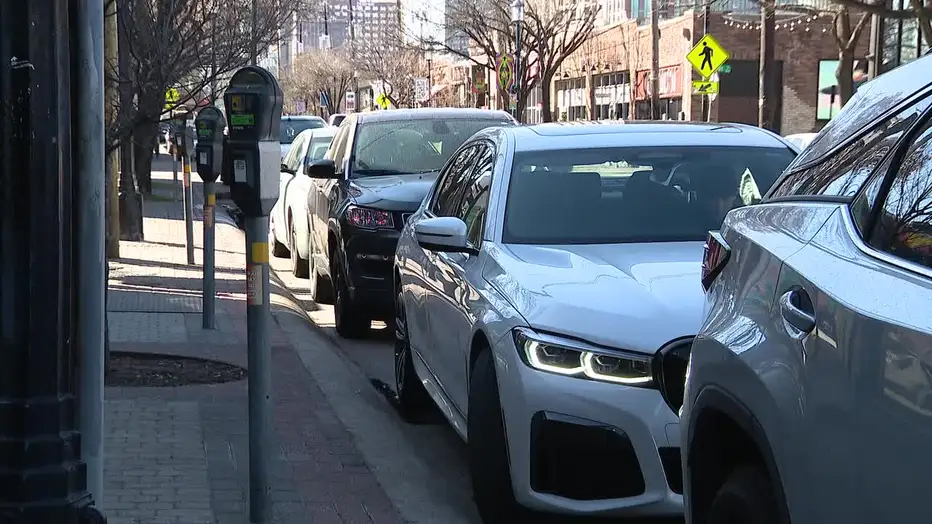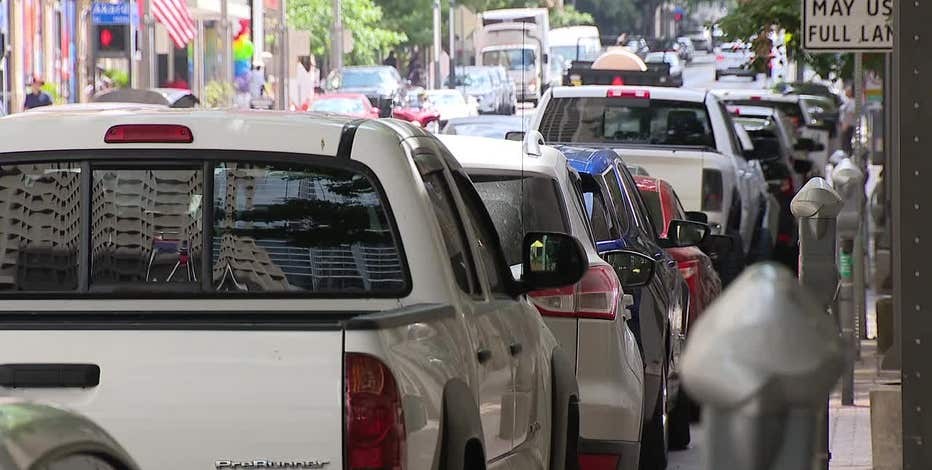
DALLAS – With land at a premium in the city of Dallas, a city zoning committee on Monday decided the city should free up land by eliminating the parking requirement on businesses and apartments.
The debate, though, is far from over.
It’s a move that sounds drastic if approved by the Dallas City Council; businesses, apartment complexes and home developers would no longer be required by the city to also build parking.
But one councilman says that doesn’t necessarily mean your parking headaches will get worse.
A lot has changed in Dallas since the 1960s, but the way the city thinks about parking has not.
Dallas City Councilman Chad West says the time for change has arrived. Well, he actually said that four years ago. It’s why he says Tuesday’s vote is a big deal.
“If you think about the opportunity for more housing versus parking, housing — at least in my mind — is always gonna win out economic development,” he said. “Really, parking almost never wins on the scale of when you compare it to any other priority in the city that our constituents have told us that they have.”
Senior Dallas City Planner Michael Wade says the parking problem is really a matter of driver habits and expectations that stem from a long-outdated city approach dating back to the 1950s. Now, he says many cities want to turn parking lots back into parks or housing and to encourage other forms of transportation.
West says the idea is less government. Let the lenders and the businesses figure out how much parking they need instead of the city.
“There’s tens of thousands of different types of businesses in the city. They know their needs of their customers better than the city of Dallas does in any situation,” he said. “And what this reform will allow is for the market and the entrepreneurs and the business owners that really make our city special to be able to provide the parking that’s actually needed and not this arbitrary parking requirement.”
But some homeowners do have concerns about spillover parking flooding their residential streets.
“How do we protect those neighborhoods that are very potentially harmed by a lot of encroaching, parking?” West asked.
The councilman says the solution is protective overlays, a process that allows residents to petition for signs that limit parking to residents in neighborhoods.
West says he made the proposal because businesses in his district were not allowed to provide seating if they did not have the minimum level of parking required under the current city rules.
“Almost a mile of street frontage that people could park on,” he said. “But because the way the code was written, that restaurant could not provide seating for its customers.”
The city planning commission will take up the discussion next before it goes to the full city council for a vote possibly this summer.

